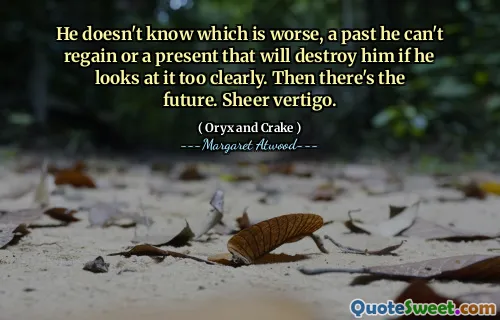Human society, they claimed, was a sort of monster, its main by-products being corpses and rubble. It never learned, it made the same cretinous mistakes over and over, trading short-term gain for long-term pain. It was like a giant slug eating its way relentlessly through all the other bioforms on the planet, grinding up life on earth and shitting it out the backside in the form of pieces of manufactured and soon-to-be-obsolete plastic junk.
The authors describe human society as a destructive entity, likening it to a monstrous character that produces nothing but death and destruction. They argue that humanity fails to learn from its mistakes, continually prioritizing immediate benefits over sustainability. This cycle leads to a perilous impact on the environment and other forms of life.
Furthermore, the analogy of a giant slug illustrates humanity's relentless consumption and wastefulness. Instead of fostering a balanced coexistence with nature, society is depicted as devouring it, ultimately leading to a legacy of waste and pollution, symbolized by the mountains of discarded plastic. This critical viewpoint highlights the need for introspection and change.






